There is only one ultimate and effectual preventive for the maladies to which flesh is heir, and that is death
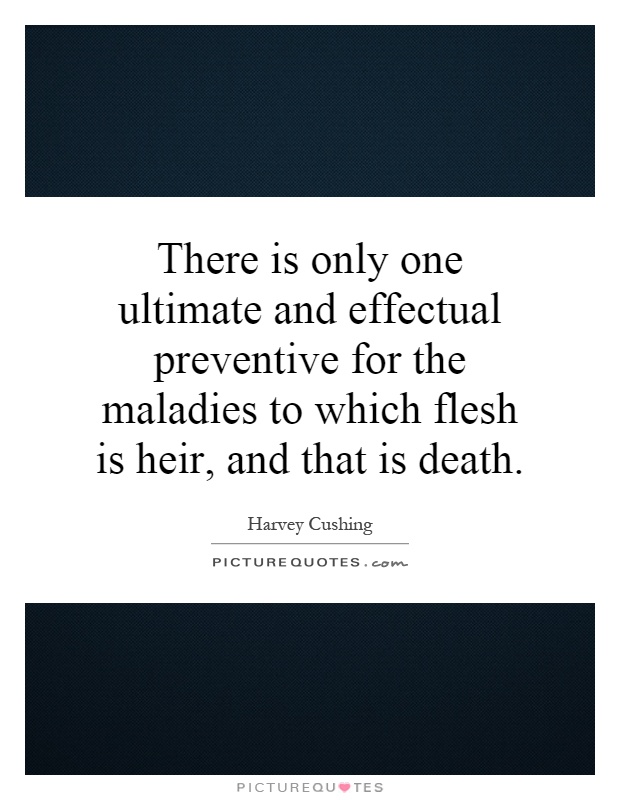
There is only one ultimate and effectual preventive for the maladies to which flesh is heir, and that is death
Harvey Cushing, a renowned American neurosurgeon, is often credited with revolutionizing the field of medicine through his groundbreaking research and innovative surgical techniques. Throughout his career, Cushing made significant contributions to the understanding and treatment of various neurological disorders, earning him the title of the "father of modern neurosurgery."One of Cushing's most famous quotes is, "There is only one ultimate and effectual preventive for the maladies to which flesh is heir, and that is death." This statement reflects Cushing's deep understanding of the limitations of medical science and the inevitability of mortality. Despite his groundbreaking work in the field of neurosurgery, Cushing recognized that death is an unavoidable part of the human experience.
Throughout his career, Cushing encountered countless patients suffering from a wide range of neurological disorders, from brain tumors to epilepsy. While he dedicated his life to finding innovative treatments and cures for these conditions, Cushing understood that medicine could only do so much to prolong life. Ultimately, death is a natural part of the human condition, and no amount of medical intervention can prevent it indefinitely.
Cushing's quote also speaks to the idea that death can be a release from suffering. In cases where patients are facing terminal illnesses or debilitating conditions, death may be seen as a merciful end to their pain and suffering. While modern medicine has made great strides in prolonging life and improving quality of life for many patients, there are still limits to what can be achieved.


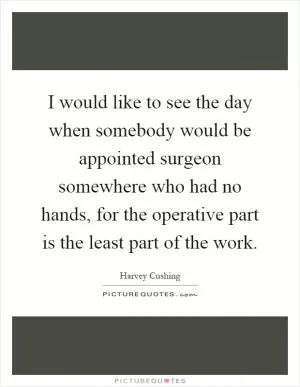
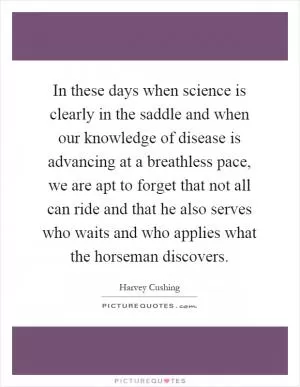

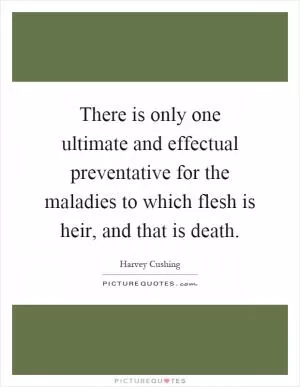



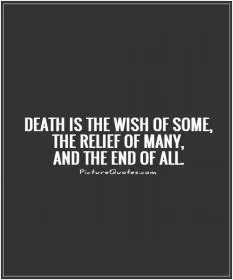


 Friendship Quotes
Friendship Quotes Love Quotes
Love Quotes Life Quotes
Life Quotes Funny Quotes
Funny Quotes Motivational Quotes
Motivational Quotes Inspirational Quotes
Inspirational Quotes